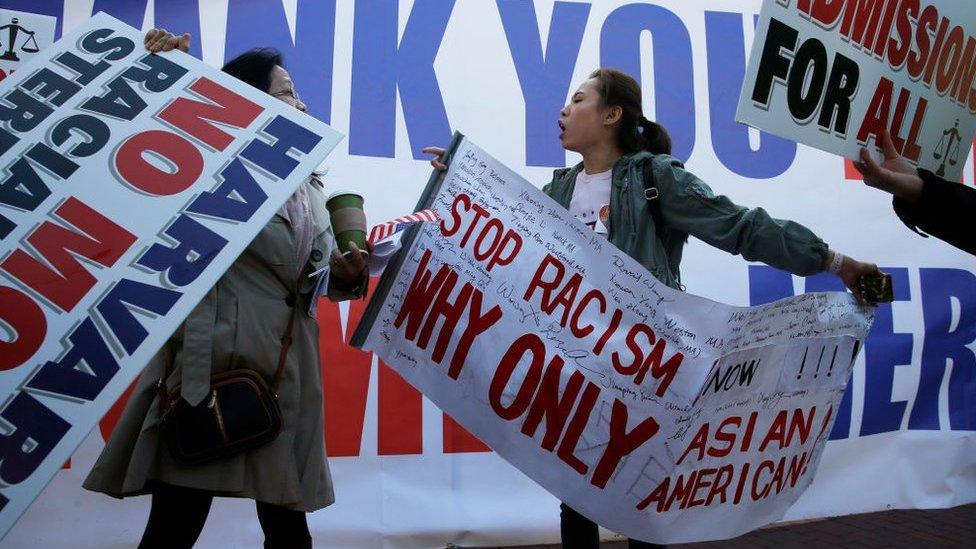US Supreme Court takes up race-based college admissions
- Published
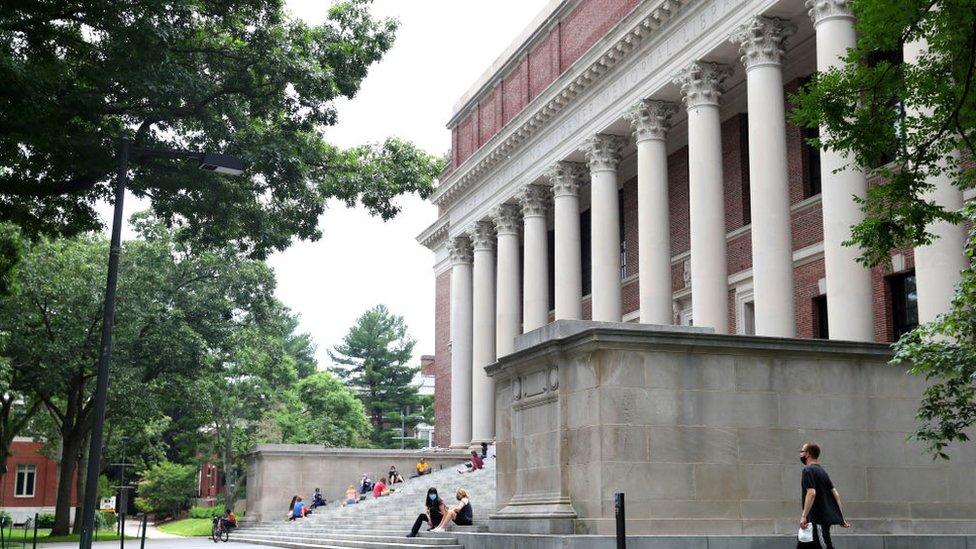
The cases concern admissions at Harvard University (pictured) and the University of North Carolina
The US Supreme Court has heard two cases that could dramatically alter the extent to which universities can consider an applicant's race during the admissions process.
The eventual ruling could end decades-old affirmative action policies and significantly affect how universities manage admissions.
Affirmative action is among the most contentious issues in US education.
Conservative justices on the court appeared skeptical of those policies.
The cases heard on Monday concern admissions at Harvard and the University of North Carolina. The court heard challenges to their admissions policies, which consider race among many factors when evaluating applications.
The policies are designed to boost the number of black and Hispanic students, and are intended to ensure minority groups are fairly represented among university student bodies.
But the question being weighed by the court is whether they are discriminatory and violate civil rights laws. Its eventual decision could radically impact the admissions plans of hundreds of institutions of higher education across the US.
The plaintiffs, a non-profit group called Students for Fair Admissions, accuse Harvard of discriminating against Asian American applicants in order to boost representation from other groups.
In the University of North Carolina case, the same group argues the college's use of race in its admissions process violates the US Constitution as well as federal civil rights laws that cover public universities.
The court's nine justices are expected to issue a decision at the end of the court's current term in July 2023.
The Harvard case - Students for Fair Admissions v President and Fellows of Harvard College - has been working its way through the US court system since 2014, when the non-profit first sued the university.
Students for Fair Admissions is headed by a conservative activist Edward Blum, and opposes affirmative action policies.
The group is specifically asking the Supreme Court to overturn the precedent in a landmark 2003 case, Grutter v Bollinger, which upheld affirmative action policies at a state university. That decision paved the way for universities to consider race as one of several factors in admitting students.
After a day of questioning, the court, which has a 6-3 conservative majority, is expected to be sympathetic to the group's challenges. It remains to be seen whether they issue a narrow decision more closely focused to the specific cases or a broader ruling that has wider implications on US higher education.
During oral arguments, conservative-leaning justices grilled the universities on how race was considered during admissions.At one point, Chief Justice John Roberts asked about a hypothetical scenario in which a black applicant and a white applicant from similar economic backgrounds were compared by the admissions committee.
Justice Roberts asked if, under Harvard's policies, the black student would receive "a tip" or "a benefit" due to his stated race."Isn't that very stereotypical under the Harvard programme?" he asked lawyers representing Harvard. "It is simply not the case that every black applicant gets a quote, 'tip,'" replied lawyer Seth Waxman, who represents the school.
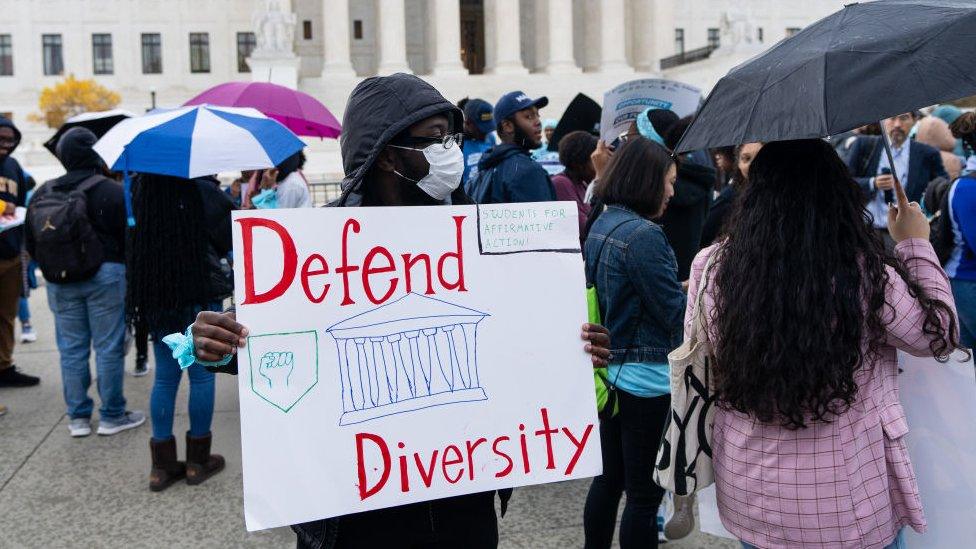
In legal filings, Harvard denied discrimination and argued it uses race as a factor in admissions within the parameters of the law. It said its policy allowed the university to build a more holistic educational experience for students.
Institutions like Harvard say they consider an applicant's race as one of several factors - including economic status and religious belief - in order to build classes that accurately represent the racial and ethnic diversity of the country.
"Americans have come to view diversity as integral to learning and to trust that the path to leadership is open to all," lawyers representing Harvard University wrote in a court filing.
Overruling precedent-setting cases on affirmative action, they said, "would undermine the public's faith in those foundational principles".
Opinion polls show varied attitudes towards affirmative action, often depending on how the question is framed.
A 2021 Gallup poll found that 62% of Americans were in favour of affirmative action programmes. A separate poll released by the Pew Research Center earlier this year, however, found that 74% of Americans - including a majority of black or Latino respondents - believed that race should not be factored into college admissions processes.
Proponents of affirmative action say that it helps rectify societal, economic, and historical inequities that prevent some minority groups from gaining access to the most elite educational institutions in the US.
But critics have long argued that considering race in university admissions is discriminatory, and that these policies come at the expense of other groups or individual students.
Nine US states - including California, Florida, Georgia and Michigan - currently prohibit the use of race as a factor in admissions for public universities.
- Published24 January 2022
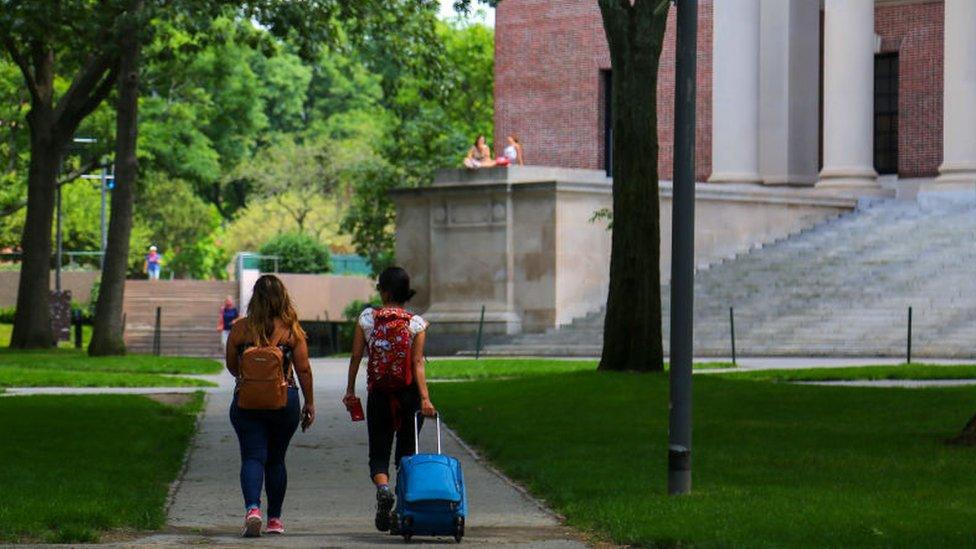
- Published30 August 2018
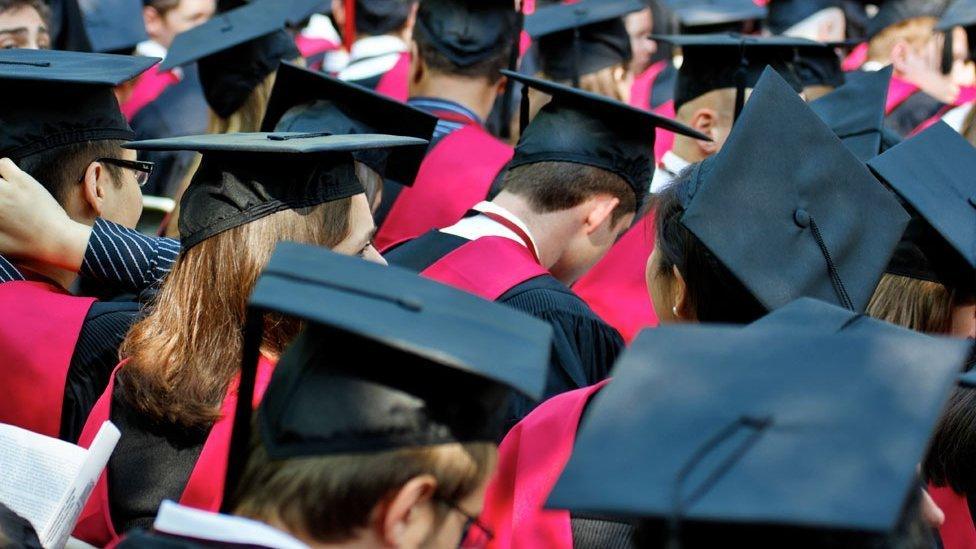
- Published15 October 2018
